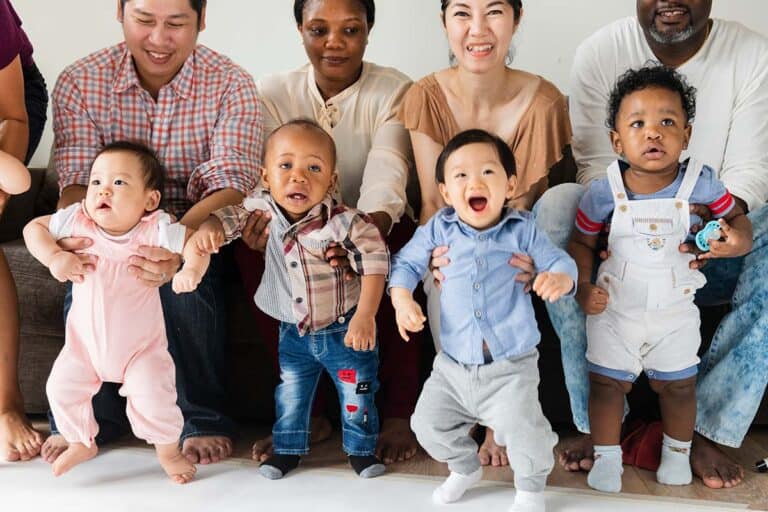As modern medical advancements, such as in vitro fertilization (IVF), egg donation, and surrogacy, bring joy to families worldwide, parents face the crucial task of discussing these unique beginnings with their children. Open and age-appropriate conversations are essential to ensure children develop a positive self-identity and understand the love and intention behind their conception. Drawing on child psychology research outcomes, this blog offers guidance on how to have honest and nurturing discussions with children about their birth via IVF, egg donation, or surrogacy.
Start Early and Be Honest
Experts suggest that it is best to start discussing a child’s unique conception story from an early age. Begin with simple, age-appropriate explanations that can gradually be expanded upon as the child grows. Being honest about the use of IVF, egg donation, or surrogacy helps establish trust and lays the foundation for open communication in the future.
Use Age-Appropriate Language
Children have varying levels of understanding at different ages, so it is crucial to use language that is suitable for their developmental stage. Use simple, concrete terms for young children and progressively introduce more complex concepts as they mature. Allow them to ask questions and provide honest answers that respect their curiosity.
Focus on the Love and Intention
Emphasize the love and intention that went into their conception. Let them know how much they were wanted and cherished, regardless of the biological details. Reinforce that families are formed through different means, and their unique beginning is a special part of their story.
Address Identity and Self-Identity
As children grow older, they may begin to question their identity and wonder about their genetic background. Encourage open discussions about self-identity and assure them that their uniqueness is something to be celebrated. Reiterate that family bonds are built on love and care, extending beyond biological ties.
Address Feelings and Emotions
Children may experience various emotions as they learn about their conception story. They might feel curiosity, confusion, or even concern. Validate their feelings and create a safe space for them to express themselves without judgment. Assure them that it is normal to have questions and feelings about their unique journey.
Use Storytelling and Books
Utilize storytelling to help children better understand their conception story. There are age-appropriate books available that address IVF, egg donation, and surrogacy in a positive and reassuring way. Reading together can foster meaningful conversations and make the topic more relatable.
Seek Professional Support if Needed
If you find it challenging to address the topic or if your child is expressing significant emotional distress, consider seeking professional support from a child psychologist or counselor. They can provide guidance and assistance tailored to your child’s specific needs.
Conclusion
Talking to children about their conception via IVF, egg donation, or surrogacy is a crucial aspect of their emotional development and self-identity. Using age-appropriate language, emphasizing love and intention, and fostering open communication are vital components of these discussions. By embracing their unique beginnings and nurturing their emotional well-being, parents can empower their children to embrace their individuality and build strong, loving family bonds based on trust and honesty.






